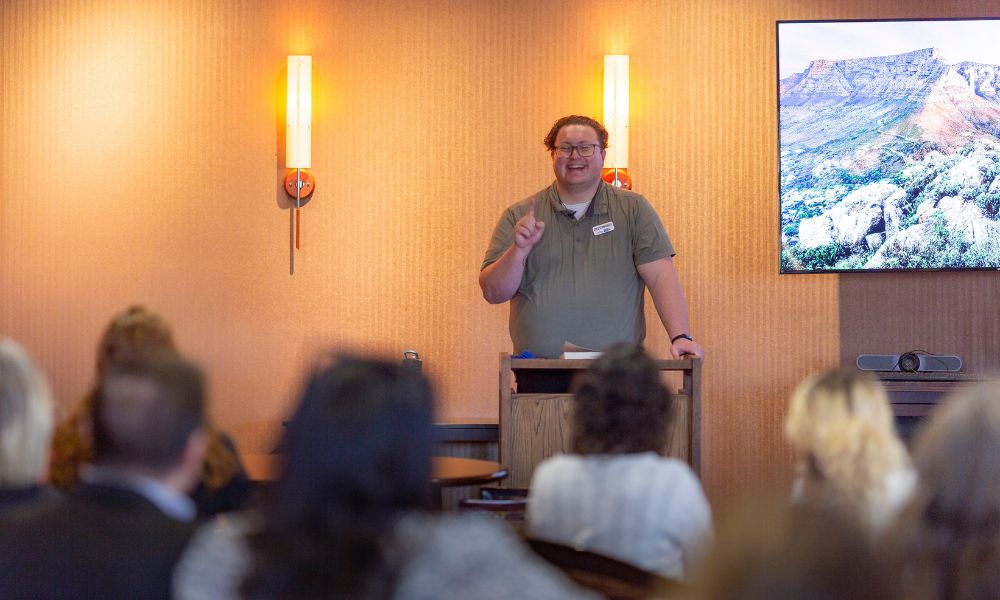When Cole Schneiders returned to Newman University to deliver a talk last year on the “preferential option for the poor,” he stood before familiar faces — former professors, classmates and mentors.
“It’s just very cool to be back and be welcomed as a teacher, so to speak,” he said.
Schneiders’ journey to that teaching moment, and even more so, his current career, was anything but linear. He began college at Kansas State University before transferring to Newman as a seminarian in the St. Joseph House of Formation. He eventually discerned that the path to priesthood was not his calling, but on his way to earning an English degree from Newman, Schneiders developed an unwavering commitment to social justice.
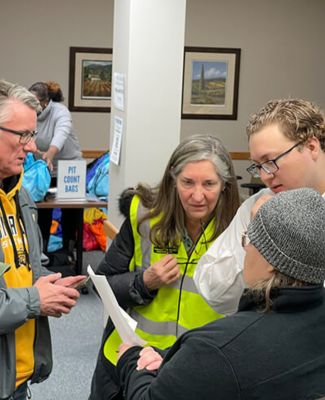
Today he serves as the continuum of care planning manager for the Coalition to End Homelessness in Wichita/Sedgwick County at United Way of the Plains.
Drawing from his faith and academic background, Schneiders personally aligns with the concept of the “preferential option for the poor,” a principle deeply rooted in Catholic social teaching. In his talk at Newman, he shared biblical scriptures that highlighted God’s consistent call to care for the marginalized — the orphan, the widow, the stranger.
“Jesus identifies himself as the face of the poor,” he emphasized. “We experience him in the poor, the downtrodden and the oppressed.”
Embracing the preferential option for the poor
Schneiders’ work centers on challenging misconceptions about homelessness.
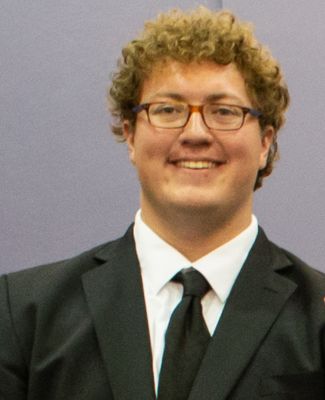
“People often say they choose this lifestyle or that everyone out there is strung out on drugs,” Schneiders noted. “But many are just like you and me.”
In his capacity as a planning manager, Schneiders is responsible for overseeing the community’s response to homelessness. He facilitates collaboration among service providers, government agencies and community stakeholders to develop comprehensive strategies that address the root causes of homelessness.
Advocating through action
“We focus on a ‘housing first’ approach at United Way,” Schneiders explained. “The idea is to provide individuals with stable housing without preconditions, and then address other issues such as employment, mental health and substance abuse.”
He shared the story of Richard, a Wichita man who had been homeless for six years. Richard prided himself on remaining unseen, working multiple jobs while battling addiction. It wasn’t until he was offered housing without conditions that he began to heal.
“He broke down in tears and said, ‘I just didn’t think I deserved that,'” Schneiders recounted. “It wasn’t until we gave him the chance to regain his human dignity that he was willing to go along with this idea that ‘Yes, you deserve a house.'”
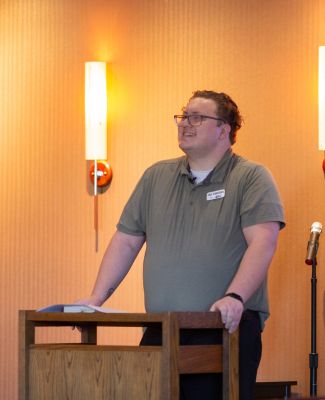
Schneiders also advocates for policy changes and increased funding to support homelessness initiatives. He leverages his skills in writing and communication — honed during his time at Newman — to share the stories of those experiencing homelessness, aiming to shift public perception and inspire action.
Challenging systems and stereotypes
Schneiders doesn’t shy away from critiquing systemic issues that perpetuate poverty and homelessness. In his talk, he discussed the flaws in the welfare system, historical inequalities and the societal tendency to blame the poor for their circumstances.
“The first challenge is to encounter folks experiencing the level of destitution,” he said. “The second is judging differently — working to dismantle perceptions that the poor are lazy or don’t want to work.”
Schneiders highlighted that in Sedgwick County, 27% of residents are classified as “Alice Households”: Asset Limited, Income Constrained, Employed.
“These are people who are working, sometimes multiple jobs, and still can’t make ends meet,” he explained. “A sudden expense like a medical bill or car repair can push them into homelessness.”
He urges others to confront their biases and to see the humanity in those experiencing homelessness.
“We are all called to care for our neighbor,” he added.
Another Newman connection
Newman University changed the trajectory of Schneiders’ vocational calling in more ways than by career path.
Schneiders met his wife Madeline “Maddie” (Alvarez) Schneiders as a student at Newman. Like Schneiders, Maddie also discerned a religious vocation, spending time with the Servants of Mary Ministers to the Sick, a Catholic convent in California. She also felt called to a different path, which led her to Newman.
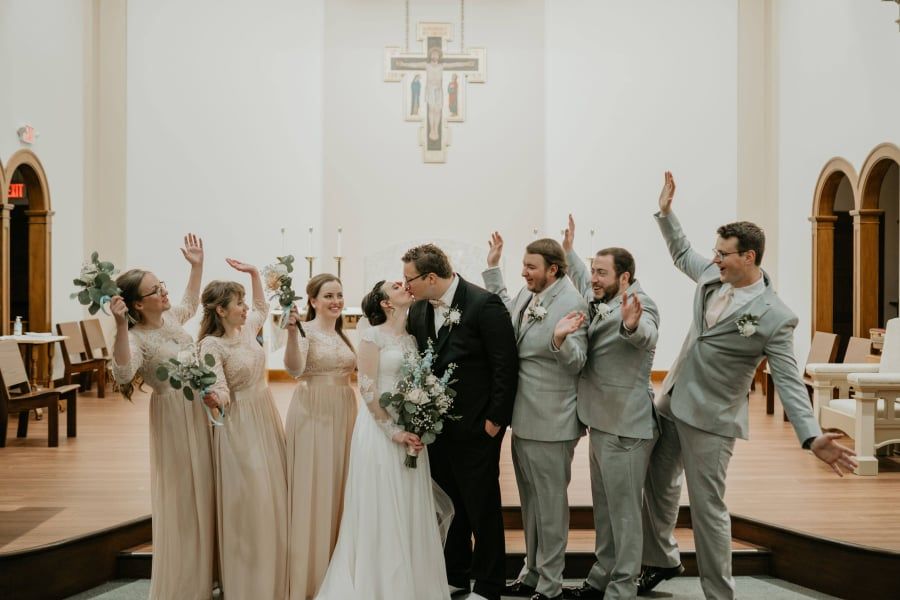
“One thing that’s been really good for both of us is how we experience our relationship with God,” Cole said. “We see God very differently, but I think it’s a strength to see God in two different perspectives and what it means to be a Catholic.”
They married in St. John’s Chapel on the Newman campus in 2021.
“Newman kept the bond strong,” Maddie said.
Transforming society for the better starts at Newman
Newman University is a Catholic university named for St. John Henry Newman and founded by the Adorers of the Blood of Christ for the purpose of empowering graduates to transform society.
